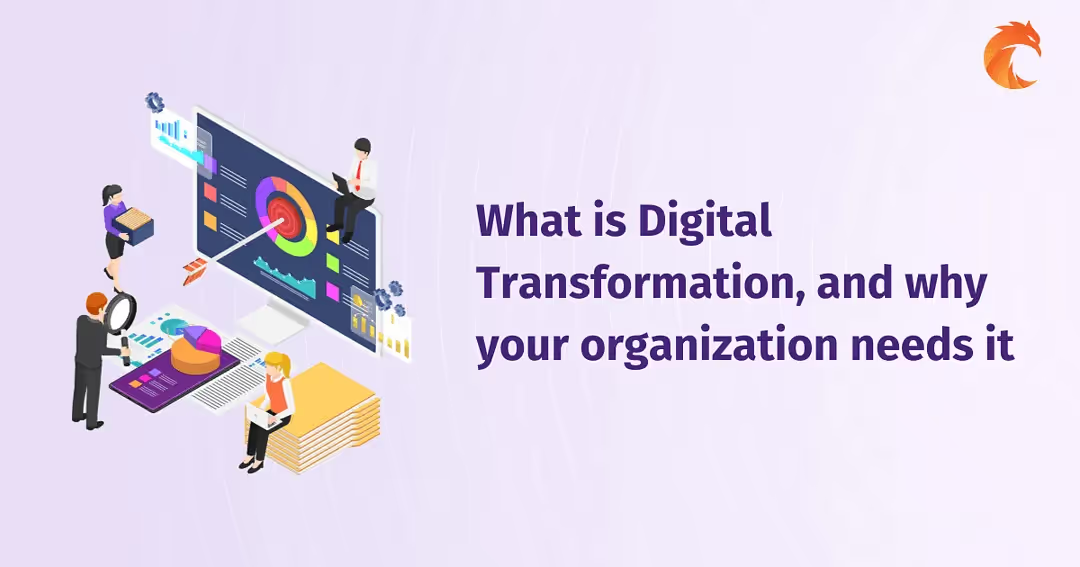Understanding Custom Real Estate Software Solutions


Navigating the rapidly evolving real estate market requires technology that adapts to your unique needs. That’s, succinctly, the promise of custom real estate software.
In this article, we examine exactly why and how these tailored solutions outperform one-size-fits-all packages, and what to consider when implementing them in your real estate business. Discover the role custom software plays in efficiency, client satisfaction, and staying ahead in a competitive landscape.
Key Takeaways
- Custom real estate software solutions are designed to meet the specific needs of real estate businesses, providing benefits such as improved services, streamlined operations, enhanced client relationships, and data-driven decision-making.
- The evolution of technology, such as mobile apps and cloud computing, has shifted the focus from generic to custom real estate software, allowing for more efficient, secure, and tailored real estate business operations.
- The development and implementation of custom real estate software involve a structured process, including assessing business needs, defining software objectives, software design, and iterative testing, leading to successful integration into business operations.
Introduction to Custom Real Estate Software
What is proptech software?
Proptech software, short for property technology, refers to the use of digital technology in real estate to research, buy, sell, and manage properties. It encompasses various digital innovations tailored to the needs of the property industry.
Brief overview of what custom software is
Custom real estate software is developed to provide specifically to the individual needs of real estate businesses. This type of software improve operations by automating various tasks. It plays a significant role in the proptech industry, offering mobile applications that support the distinct workflows of estate agencies, thereby improving their operational effectiveness. For instance, a property management system, also known as rental property management software, can be developed to specifically provide to the needs of property managers and property management companies, including handling maintenance requests and tenant management. With the help of rental management software, managing rental properties becomes more efficient and improved.
How technology has changed real estate software over time
A shift from generic to custom solutions in real estate software has been prompted by technological advancements. The constraints of generic software, such as irrelevant or unnecessary features, resulted in cluttered interfaces. Conversely, custom solutions are tailored to the specific requirements of the clients, providing them with the necessary property management tools.
Mobile apps, introduced through the evolution of mobile technology, have fundamentally changed operations and property marketing strategies of real estate businesses. Real estate app development, along with cloud computing technology, has had a significant impact on the real estate software landscape, bringing about cost and time savings, improved performance, and enhanced security.
Diverse Types of Real Estate Software Solutions
Real estate software solutions have evolved to encompass various types, each tailored to meet specific needs in the industry. From listing tools that simplify property search and presentation to customer relationship management systems that enhance client interactions, these solutions are integral components of a successful real estate business.
Professionals can choose the right tools for their unique business needs by understanding these diverse types of real estate software solutions.
Listing and Property Display Tools
Listing and property display tools, such as Multi Listing Service (MLS) and IDX Real Estate Solutions, have significantly eased the process of property search and presentation. The MLS is a database created by collaborating real estate brokers to share information about property listings available for purchase, simplifying property search and information sharing process for property owners and potential buyers.
MLS API and IDX solutions allow brokers and agents to showcase each other’s properties on their websites, creating a centralized and easily accessible online platform for property owners and potential buyers to view available properties.
Customer and Relationship Management
In real estate businesses, enhancing customer relationship management is a critical role played by custom CRM software. By gathering, organizing, and maintaining customer-related data, CRM systems improve the overall customer experience. They provide a centralized platform for efficient storage and access to customer information while offering advanced client management capabilities, allowing agents to effectively track client interactions and preferences.
Enterprise Solutions for Real Estate
To help manage and optimize real estate operations, enterprise solutions like ERP software are designed. These solutions encompass processes such as:
- Sales
- Billing
- Collections
- Property management
- Asset management
- Project management
They facilitate tracking of procurement and financial costs. Through the integration of these diverse functions, ERP software aids in managing real estate operations by optimizing property management tasks, improving overall effectiveness, and providing a wide range of tools.
Property and Asset Management Systems
In the real estate industry, property and asset management systems play a pivotal role. They encompass:
- The management and tracking of property assets
- Financials
- Leases
- Maintenance
- The provision of insights into portfolio performance and investments.
By automating tasks such as tenant screening, lease tracking, and online rent payments, these systems improve the process and minimize manual errors.
Construction and Investment Management
Construction and Investment Management software tools offer various benefits in real estate management, including:
- Providing financial and operational insights
- Reducing errors and mitigating potential risk
- Streamlining asset analysis
- Maintaining compliance with guidelines and regulations
These tools are particularly useful for residential property management, enhancing the planning and execution of construction projects while offering valuable insights for investment decisions.
Analytics and Valuation Tools
In the real estate industry, the centrality of analytics and valuation tools is increasing. By processing and interpreting substantial amounts of pertinent data, these tools enable users to:
- Make well-informed decisions regarding property sales, purchases, rentals, or management
- Accurately determine property prices and valuations based on factors like location, property size, and amenities
- Provide insights into market trends, customer behavior, and property values
These tools are essential for anyone in the real estate industry looking to make data-driven decisions and stay ahead of the market.
Marketing and Engagement Platforms
A unique advantage is offered to real estate businesses by marketing and engagement platforms. These platforms, including social media sites and specialized software, enable businesses to reach a wider audience, engage with potential clients, generate leads, and track results. With features like workflow automation, lead generation, data analysis, interactive maps, virtual tours, chatbots, social media integration, property listing management, automated email campaigns, and SEO optimization, these platforms are transforming how businesses market and sell properties.
Advantages of Custom Software solutions in Real Estate
For real estate businesses, numerous advantages are offered by custom software solutions. These advantages include:
- Enhancing operational efficiency
- Delivering personalized customer experiences
- Providing scalable and adaptable solutions
- Optimizing operations and improving effectiveness
- Offering tailored features to meet specific needs of the real estate sector
- Resulting in a more seamless user experience
- Providing a competitive advantage in the market
- Allowing flexibility to adapt and refine processes without sacrificing service quality.
Enhancing Operational Efficiency
Custom software, including accounting software, greatly enhances operational efficiency in the real estate sector through:
- Automation and streamlined processes
- Faster and more accurate data management
- Improved communication channels
- Efficient document and transaction handling
By enabling these features, custom software optimizes business operations in the real estate industry.
Personalized Customer Experiences
In delivering personalized customer experiences, custom software plays a crucial role. It presents real-time property information and recommendations customized to individual client preferences, enhancing the overall experience and fostering greater client satisfaction, loyalty, and long-term relationships.
Scalable and Adaptable Solutions
Scalability and adaptability are offered by custom solutions, future-proofing real estate businesses. They are designed to be adjusted and expanded to support business expansion and operational adjustments. This adaptability allows real estate businesses to continue growing and succeeding in a dynamic market, without being limited by their technical framework.
Implementing Custom Software in Your Real Estate Business
Implementing custom software in your business is a structured process, which involves the following steps:
- Clear definition of the software’s objectives and requirements, including identifying necessary features.
- Evaluation of needs and challenges.
- Designing the software.
- Testing the software.
- Refining the software.
- Launching the software.
Assessing Your Needs and Challenges
Before implementing custom software, a crucial step is to assess your business needs and challenges. By identifying unique business requirements, businesses can ensure that the software solution will effectively meet these needs, leading to successful implementation and enhanced operational efficiency.
The Development Process: From Idea to Implementation
From the identification of requirements to testing and quality assurance, the development of custom software involves several stages. Choosing the right development partner and following a structured development process ensures the successful implementation of the software solution.
The Future of Real Estate Software: Trends and Predictions
Shaped by technological advancements such as:
- Artificial intelligence
- Machine learning
- Big data
- Digitization
- Automation
- Virtual reality
- Blockchain technology
The future of real estate software is exciting and promising. As these technologies continue to evolve, so will the capabilities and features of real estate software, leading to more efficient, transparent, and accessible real estate transactions.
If you’re interested in reading more about the topic, read our another publication Proptech Market Trends.
Conclusion
Custom real estate software solutions, offering numerous benefits, make an essential investment for businesses looking to stay competitive and adapt to the ever-evolving proptech landscape. With a plethora of tools and features tailored to meet the specific needs of a business, custom software solutions enhance operational efficiency, deliver personalized customer experiences, and provide scalable and adaptable solutions.
As the proptech industry continues to evolve, businesses that leverage these custom software solutions will be well-positioned to navigate the changing landscape and achieve success.
Summary
To sum up, custom real estate software solutions are transforming the proptech industry, automating operations, reducing errors, and streamlining processes. They offer a range of benefits from enhanced operational efficiency, personalized customer experiences, and scalable, adaptable solutions. As the real estate industry continues to evolve, it is clear that custom software solutions will continue to play a pivotal role in shaping the future of the industry.
Importance of custom real estate software
Tailored solutions designed to meet the unique demands of real estate enterprises are what we refer to as custom real estate software. With its capability to automate operations, reduce errors, and improve processes, custom software is reshaping traditional real estate practices. Proptech is the digital toolkit used by real estate professionals. Its impact on reshaping traditional real estate practices is attributed to its ability to enhance efficiency, improve customer experience, and facilitate data-driven decision making. The impact of such software in the proptech industry has been substantial, with mobile apps for estate brokers addressing unique operations of agencies and enhancing efficiency.
Ready to scale your business with the right tech partner?
Related posts
Dive deeper into this topic with these related posts
You might also like
Discover more content from this category
In the era of rapid technological advancements, embracing digital transformation is no longer a luxury but a necessity for organizations striving to stay competitive and thrive.
Technology and education seem inseparable now, and they've changed the way people start learning. 2021 proved the importance of eLearning. By 2026, the global eLearning market should be worth $375 billion! Check eLearning challenges for 2022-2026
Scaling your organization and staying competitive often rely on effective implementation of IT development strategies. One way to achieve this is by leveraging staff augmentation, outsourcing, and smart business scaling techniques.






